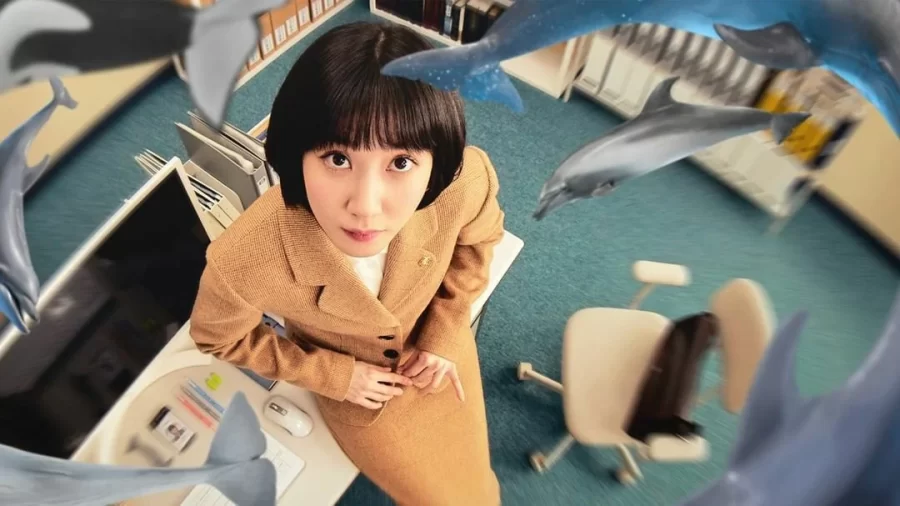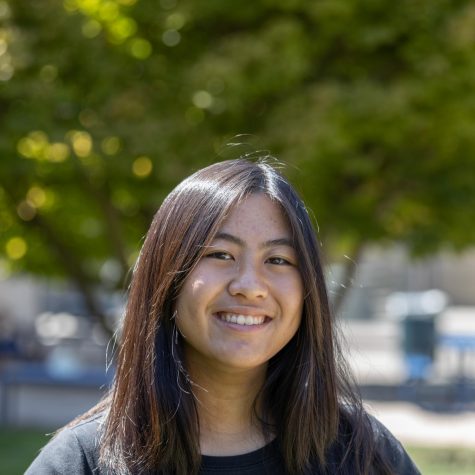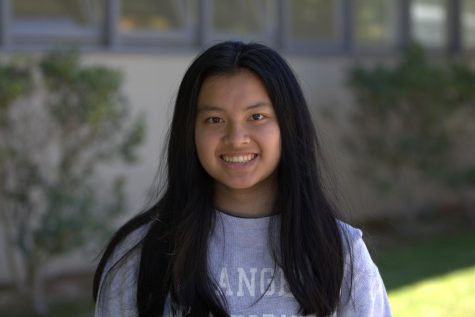“Extraordinary Attorney Woo” receives mixed reviews on autism representation
Popular Netflix original “Extraordinary Attorney Woo” stars an autistic lawyer who combats the various challenges that come with the stigmas of people with mental disorders in the workplace.
Korean dramas seem to be taking over the Netflix charts, and “Extraordinary Attorney Woo” is no exception. After spending six weeks on Netflix’s Top 10 list, audiences are enamored with the show’s star, an autistic attorney working at a top Korean law firm. The show has been praised for portraying an autistic character as the main lead, providing representation for those with similar symptoms as Woo. Despite the success of the show, some feel that the show does not offer a good representation of people on the autistic spectrum, and further reinforces stereotypes that those with autism are “geniuses” with amazing memory.
To provide an accurate depiction of autism, the writers of the show did their part in researching autism and consulting with professionals, such as early childhood special education Professor Kim Byung-gun of Korea Nazarene University. The drama realistically showed how Woo deals with the struggles that come with having autism in the workplace, including the prevalent stigmas surrounding people with disabilities and disorders.
“It is realistically unlikely for an autistic person to have a high IQ and actually become a lawyer, but I still think this is a helpful approach to make people more interested in understanding autism,” Autism Society of Korea Attorney and President Kim Yong-jik said.
Haley Moss, an autistic attorney and neurodiversity advocate, shared her thoughts on the drama in an interview with Korea Herald, stating that she believes the research helped with the accurate depiction of the autistic symptoms that Woo exhibited. Moss related to Woo’s need to wear headphones in loud places and eating the same foods as part of her routine, which led her to feel “extremely represented.”
“Attorney Woo does finger and hand stims like I do,” autistic content creator Stephanie Bethany said. “[She] wears her headphones as needed and not 24/7 like I do, gets into a romantic relationship with someone who is not autistic like I have, engages in occasional echolalia and hits her head/ears when things become escalated, threatening and loud like I do. So, there are many ways that I feel represented by Attorney Woo.”
While many responses to the autistic representation were positive, there were still various criticisms made, starting with the controversial title. The official original Korean title of the show directly translates to “Weird Attorney Woo,” even though the official English title is “Extraordinary Attorney Woo.” A Korean autistic creator on Tik Tok brought this to people’s attention, stating how although the Korean word “weird” isn’t a slur, it frames autism in a negative light.
“Extraordinary Attorney Woo” isn’t the first Korean drama starring a main character with autism. The Korean drama “Good Doctor,” which was later also made into an American show, focuses on an autistic doctor who also demonstrates similar “genius-like” traits that Attorney Woo has. However, experts estimate that genius-like tendencies only appear in 10 percent of the autistic population.
“The fact that the vast majority of characters with autism in [the] media is portrayed as having a superpower, or that autism is really a blessing in disguise muddies the waters and can confuse the public as to what autism really is,” Autism Partnership Korea employee Son Da-eun said.
An autistic TikTok creator made a video stating, “I absolutely am tired of portrayals of autistic people in especially Korean media like this. It teaches everyone that this is what autistic people look like and act like, and we do not all act this way.”
The creator goes on to say that people have told her that she doesn’t “look autistic” countless times because she does not fit into the stereotypes that are furthered by autistic characters on shows.
Some also believe that the autistic genius stereotype is harmful as it creates unrealistically high expectations. One online post stated, “People may start asking, ‘Why can’t [autistic people in real life] be like Woo?’ Korean society already wants people with developmental disabilities to stay at home or at facilities all day. I fear people will start saying, ‘If you’re not as high-functioning as Woo, just stay home.’”
The other autistic character in the show, Jeong-Hun, appeared in the third episode of the show and exhibited symptoms that were more severe than Attorney Woo. For example, he did not have a high intellectual ability nor the skill to control his actions or emotional outbursts like Woo could. The inclusion of Jeong-Hun helped enforce the idea that autism is a spectrum disorder, and this idea of a spectrum was directly acknowledged in the show by Attorney Woo. While his character emphasized the differences in autism symptoms, it only focused on the two extremes, ignoring the representation of those with moderate symptoms.
Furthermore, “Extraordinary Attorney Woo” portrayed Woo with “cute” or “baby-like” mannerisms. Creators all over social media are posting content where they mock or exaggerate Woo’s voice patterns and behaviors. As a result, many people are infantilizing her, which triggers a lot of people with autism as they find it frustrating that people are constantly using the words “cute” to describe her autistic mannerisms and actions.
Representation is difficult to perfect in any context because it is not always accurate of the population, as highlighted by the backlash “Extraordinary Attorney Woo” received. However, the attempt at representation gives future writers of TV shows and films the opportunity for progress — by learning from the show, we are one step closer to making sure people with disabilities feel adequately represented in films and shows.






Susan | Aug 10, 2023 at 10:16 pm
I am not sure quite why this little series has grabbed my interest so much, but it has. At some point, I observed that some of the acting is a bit mediocre, but the actress portraying Attorney Woo is so talented and consistent that she and her boyfriend really carry the show.
I agree with the comment that it infantillizes attorney Woo, but the script eventually does bring out that her father has rather protected her and never recruited trained counselors who might have helped with early intervention and supports. It would be a good direction for future seasons to address her increasing independence. I think the charming romance that blossoms cleverly raises issues of how others cope in such a relationship and whether it can be sufficiently “2-sided” for the long-term. I wondered what people with autism and their families would say about the series and have found this article interesting.
Alex | May 25, 2023 at 3:00 am
I’m autistic and not sure I love it. I find it uncomfortable that an allistic actress is playing someone autistic, and it feels like the message is that to be successful and liked in society, autistic people have to be incredibly talented, a genius, whereas allistic people can function and get jobs without having those traits.
Daniel Kaschel | Jan 31, 2024 at 5:53 am
I can see why you’d feel that way.
I wondered while watching whether there were autistic actresses considered for the role. And also whether there are many autistic actresses that would feel comfortable in this role.
That said, my takeaway from the show was that it was about someone extraordinary. That is true of basically all shows like this. There is a whole genre of shows with leads that have amazing memories and powers of deduction (solving cases, crimes, or whatever), and they almost always struggle with some level of social awkwardness.
That genre only represents talented geniuses in lead roles, so I feel like if there is any statement being made, it is that autistic people can also be talented geniuses.
I understand the issues and conflict, but I feel like the show ultimately moves autism representation forward, and its success lays the groundwork for further (and more nuanced) representation. It bears remembering how poorly early representation of homosexuality has aged. But it was a step forward at the time and ultimately furthered a worthy cause. Nuance came eventually, and I believe (or at least hope) it will for the autistic community as well.
Joan Deyo | Oct 21, 2022 at 5:02 pm
I love the show. I have an Autistic granddaughter and although not a genius. She is 16 and she has her own idea of the world ,much like the way attorney Woo does see it.
Marilyn | Dec 26, 2022 at 9:34 pm
I love ❤ the show, I have watched it 3times already and glad they made this series so people will look at people with autism as human beings just like us.